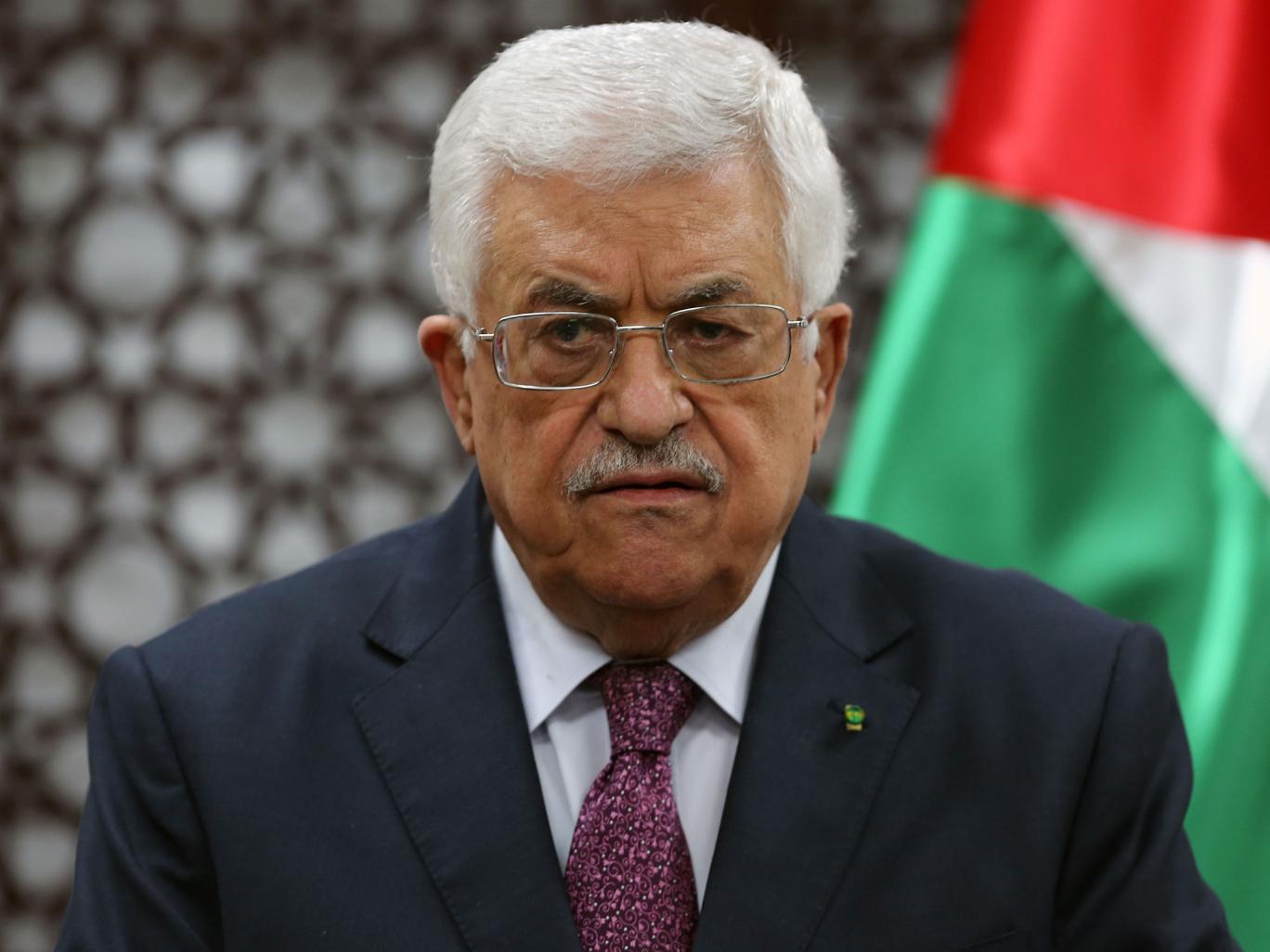Before his speech to the United Nations late on Wednesday, Palestinian President Mahmoud Abbas promised to drop a “bombshell”. In the event, he delivered little more than strong words that may amount to a hollow threat.
For most of his address, Abbas took Israel to task over its 48-year occupation, its restrictions on Palestinian prayer at a holy site in Jerusalem and its failure to prosecute Jews suspected of crimes against Palestinians.
And then he landed what sounded like a serious blow, pointing to Israel’s unchecked settlement building and “refusal to commit to past agreements”:
“We therefore declare,” he said, “that we cannot continue to be bound by these agreements, and that Israel must assume all its responsibilities as an occupying power.”
Abbas was referring to the Oslo Accords of the mid-1990s, a series of political, economic and security measures that have been the bedrock of diplomacy for two decades and enshrined the ultimate aim of giving the Palestinians their own state.
But almost as soon as the 80-year-old leader had dropped his supposed bomb, questions were being asked about what it meant in practice.
Critically, Abbas did not say that he was dissolving the Palestinian Authority, which gives the Palestinians limited self-rule in the West Bank and Gaza, nor that he was suspending security cooperation with Israel, two key elements that emerged from the Oslo Accords.
LACK OF OPTIONS
He also did not suggest that he was stepping down from his own position, which he has held since 2005 and which also grew out of Oslo, a move that would have constituted a bombshell.
Palestinian political analysts were underwhelmed, although not surprised that Abbas had served up less than promised.
“The speech reflects a sense of undecidedness, confusion and lack of options,” said Hani al-Masri, a writer, academic and political commentator based in the West Bank.
“It repeated previous positions with nothing new. There were no bombshells, not even fireworks,” he told Reuters, adding that he believed it had ultimately weakened Abbas’s position.
Israeli Prime Minister Benjamin Netanyahu was quick to criticize his counterpart, calling the speech “deceitful”.
“We expect and call on the (Palestinian) Authority and its leader to act responsibly and accede to the proposal of the prime minister of Israel and enter into direct negotiations with Israel without preconditions,” he said in a statement.
That line was likely to be repeated when Netanyahu addressed the General Assembly on Thursday, even if, in truth, neither side has shown much enthusiasm for a return to talks.
The last negotiations broke down in April 2014, with the Palestinians frustrated that Israel had not met a commitment to release prisoners, and Israel put out by Abbas’s decision to form a unity government with the Islamist group Hamas.
Unless the Obama administration and U.S. Secretary of State John Kerry decide to have another go at forging an end to the 70-year-old conflict before Obama’s second term is over, the chances of a return to talks are extremely slim.
DEADLOCK, NOT DIALOGUE
But that is unlikely to stop Netanyahu from pushing his position that Abbas is refusing to engage in negotiations, and Abbas from responding that he is only prepared to return to talks once Israel respects previous commitments.
In the interim, all eyes will be on whether Abbas follows up his U.N. rhetoric with action on the ground. If he truly intends to repudiate the Oslo agreements, he will have to dissolve the Palestinian Authority, the Palestinian police and all municipal services throughout the West Bank and Gaza.
“(Abbas) is saying, if you want to be an occupation government, then so be it,” Akram Rajoub, the governor of the Nablus district in the West Bank, told Israel Radio.
“You’ll have to do everything. We cannot continue to carry out our obligations by ourselves.”
Such a step would place a huge burden on Israel, with Israeli troops moving back into Palestinian cities to impose security and Israeli authorities left to handle education, trash collection, social services and utilities.
A clue as to whether that outcome is likely came from a senior Palestinian official immediately after Abbas’s speech.
“It was disappointing,” said Ali Ishaq, a member of the Palestine Liberation Organization. “His announcement … is an ambiguous position and did not reach the level of cancelling the Oslo Accords.” Reuters






 WhatsApp us
WhatsApp us 

